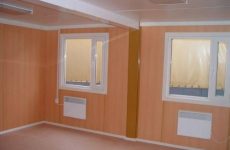SQLITE NOT INSTALLED
Canada keeps drawing entrepreneurs who want space to grow a company, raise a family and gain permanent residency. This article walks you through real options, steps and pitfalls without fluff. Read it like a conversation with someone who has seen the process many times: clear, practical and focused on what matters.
You’ll find comparisons of the main routes, a concise checklist to prepare your application, and tips on due diligence so you don’t waste months chasing the wrong program. I’ll avoid legalese and give you a roadmap you can act on today.
Why entrepreneurs choose Canada
People pick Canada for business immigration for several grounded reasons: access to stable markets, relatively transparent regulation, and programs that link economic activity to permanent residency. The ecosystem favors innovation hubs like Toronto, Vancouver and Montreal, but smaller provinces welcome newcomers eager to create jobs and invest locally. For more information about what the SUV immigration is, follow the link.
Beyond policy, there’s a social side: good public services, quality of life and a business culture that values networks and partnerships. For an entrepreneur, this translates into predictable frameworks for hiring, banking and scaling—things that quietly protect your time and capital.
Main immigration routes for business people
Canada doesn’t have a single “business visa.” Instead, several pathways exist, each with different requirements and outcomes. Below I describe the most relevant ones so you can match your situation to the right route.
All of them require preparation: a credible business plan, evidence of funds and proof you can run the proposed enterprise. Choose the path that fits your intentions—startup, buying a business, or building a company that creates local jobs.
Start-up Visa
The Start-up Visa is meant for founders who have an innovative business and the backing of a designated investor, angel group or incubator in Canada. It links a validated business concept to permanent residency rather than temporary permits.
Key features include a required commitment from a designated organization, language ability at a basic level, and personal settlement funds. The program is attractive if you have a scalable idea and can convince a Canadian investor or incubator to support you.
Provincial Nominee Program entrepreneur streams
Most provinces run entrepreneur streams within their Provincial Nominee Programs (PNPs). These streams aim to attract investors and managers who will create or buy businesses regionally. Each province sets its own rules, priorities and processing steps.
Common elements are an expression of interest, business plan review, net worth and investment thresholds, and monitoring phases. Provinces often favor applicants who will actively operate the business and create Canadian jobs.
Quebec business immigration
Quebec has a distinct immigration system and its own business immigration options. Rules differ from the rest of Canada, and applications typically go through provincial procedures before federal processing of permanent residency.
If you plan to settle in Quebec, follow provincial specifications carefully: the selection criteria are unique and language considerations (French) often play a more significant role.
Self-employed and other options
The federal Self-Employed Persons Program targets individuals with relevant experience in cultural activities or athletics who can create employment through their own activity. It is narrower but viable for specialists in these fields.
For many entrepreneurs, a more pragmatic path starts with a temporary work permit or owner/operator arrangements, then moves to a PNP nomination and permanent residency. This staged approach can be practical but requires strong documentation and legal guidance.
At-a-glance comparison
To make decisions easier, here’s a compact table comparing the main routes. Treat it as a quick orientation; specific eligibility and thresholds change, so verify with official government sources or an immigration professional before applying.
| Route | What it requires | Strengths | When to choose |
|---|---|---|---|
| Start-up Visa | Support from designated organization, basic language, settlement funds, ownership criteria | Direct PR for founders with scalable ideas; access to investor networks | You have an innovative business model and can secure investor/incubator backing |
| PNP Entrepreneur Streams | Business plan, net worth & investment (varies), job-creation commitments | Region-specific support, often faster provincial nomination | You aim to start or buy/manage a business in a particular province |
| Quebec Business Programs | Provincial requirements; French language often advantageous | Tailored for Quebec economy; province-driven selection | You plan to settle and run a business in Quebec |
| Self-Employed Program | Relevant experience in culture/sports, ability to be self-employed | Direct PR for niche professionals | You are a cultural or athletic professional with proven track record |
Typical stages in the application process
Although each program has its specifics, the common workflow generally looks like this: prepare, apply for provincial or investor support, receive nomination or commitment, file for permanent residency, and settle. Expect careful scrutiny at each stage.
Below is a step-by-step outline you can use as a checklist. Treat it as the backbone of your timeline and planning.
- Market research and business model validation: verify demand, costs and regulation in your chosen province.
- Financial preparation: document personal and business funds, clear origins of assets, and prepare audited or verifiable records when possible.
- Get required language tests and credential assessments if the program requires them.
- Secure support: for Start-up Visa get a letter from a designated organization; for PNPs follow provincial expression-of-interest processes.
- Submit nomination or commitment application; some streams include an interview or exploratory visit.
- File the federal permanent residency application once you have provincial nomination or designated-organization commitment.
- Plan settlement: housing, banking, tax planning and schooling.
Practical checklist before you apply
Preparation separates successful applicants from the rest. Below are practical items you should complete before submitting anything official.
- Write a focused business plan that addresses local market needs, competition and job creation.
- Gather verifiable proof of funds and document the legal source of assets.
- Take language tests (IELTS, CELPIP or TEF) if required by your chosen program.
- Obtain educational credential assessments where required.
- Prepare resumes and references that confirm your role in previous ventures.
- Research provincial priorities and confirm your business aligns with them.
- Find a reliable accountant and an immigration lawyer or regulated consultant for complex cases.
Common pitfalls and how to avoid them
People often stumble on documentation, unrealistic business plans or weak proof of funds. The immigration officer’s job is to verify credibility. If your application lacks clarity, expect delays or refusals.
Avoid vague promises in your business plan. Include verifiable contracts, letters of intent from local partners, and realistic financial projections. Be transparent about risks and show mitigation. When in doubt, get professional help to present a compact and honest case.
Costs and realistic timelines
Costs vary widely: government fees, proof-of-funds requirements, investment amounts (for some provinces), professional fees and relocation costs. Rather than list numbers that can change, plan for multiple categories of expense and get up-to-date figures from official sources.
Timelines also vary. Some provincial processes and the federal PR stage can take many months, sometimes more than a year. The Start-up Visa relies on third-party organizations whose timelines affect your overall schedule. Expect patience and build contingency time into your business plan.
How to prepare a convincing business plan
A strong plan is concise, local and numbers-driven. Immigration officials want to see that your project will survive in the Canadian market and lead to economic benefit. State assumptions clearly and back them with local data where possible.
- Executive summary: one page that explains the business model and why Canada.
- Market analysis: local demand, customer segments, and competitive landscape.
- Operations and team: who will run day-to-day and what roles you will hire locally.
- Financials: realistic projections for 3–5 years, break-even analysis and funding sources.
- Impact: job creation, training, community benefits and provincial alignment.
Working with professionals: when it’s worth the cost
Hiring a licensed immigration consultant or an experienced immigration lawyer is often money well spent, particularly for complex PNP cases, owner/operator arrangements or when translation of documents is substantial. They help avoid common mistakes and speed processing.
Similarly, a local accountant or business advisor is indispensable for structuring investments, handling tax implications and preparing credible financial statements. Get references and check credentials before you hire.
Resources to consult
Start with official government sources: Immigration, Refugees and Citizenship Canada (IRCC) for federal programs and each province’s immigration site for PNP details. Designated organizations for the Start-up Visa publish lists and criteria. For Quebec, consult provincial immigration pages directly.
Beyond official sites, use chambers of commerce, local economic development agencies and startup incubators. They can validate market assumptions and sometimes expedite local partnerships.
Conclusion
Business immigration to Canada is practical if you match the right program to a concrete business plan and prepare thorough documentation. The options are diverse: direct innovation routes like the Start-up Visa, regional entrepreneur streams through PNPs, provincial programs for Quebec, and niche federal programs for self-employed professionals. Each path demands evidence, credibility and a clear intent to contribute economically.
Start by choosing the province and program that align with your business model, prepare a short but specific plan that proves local viability, secure qualified professional advice for legal and financial matters, and be ready for timelines that require patience. With the right preparation, moving your business to Canada can be a realistic and rewarding step.













